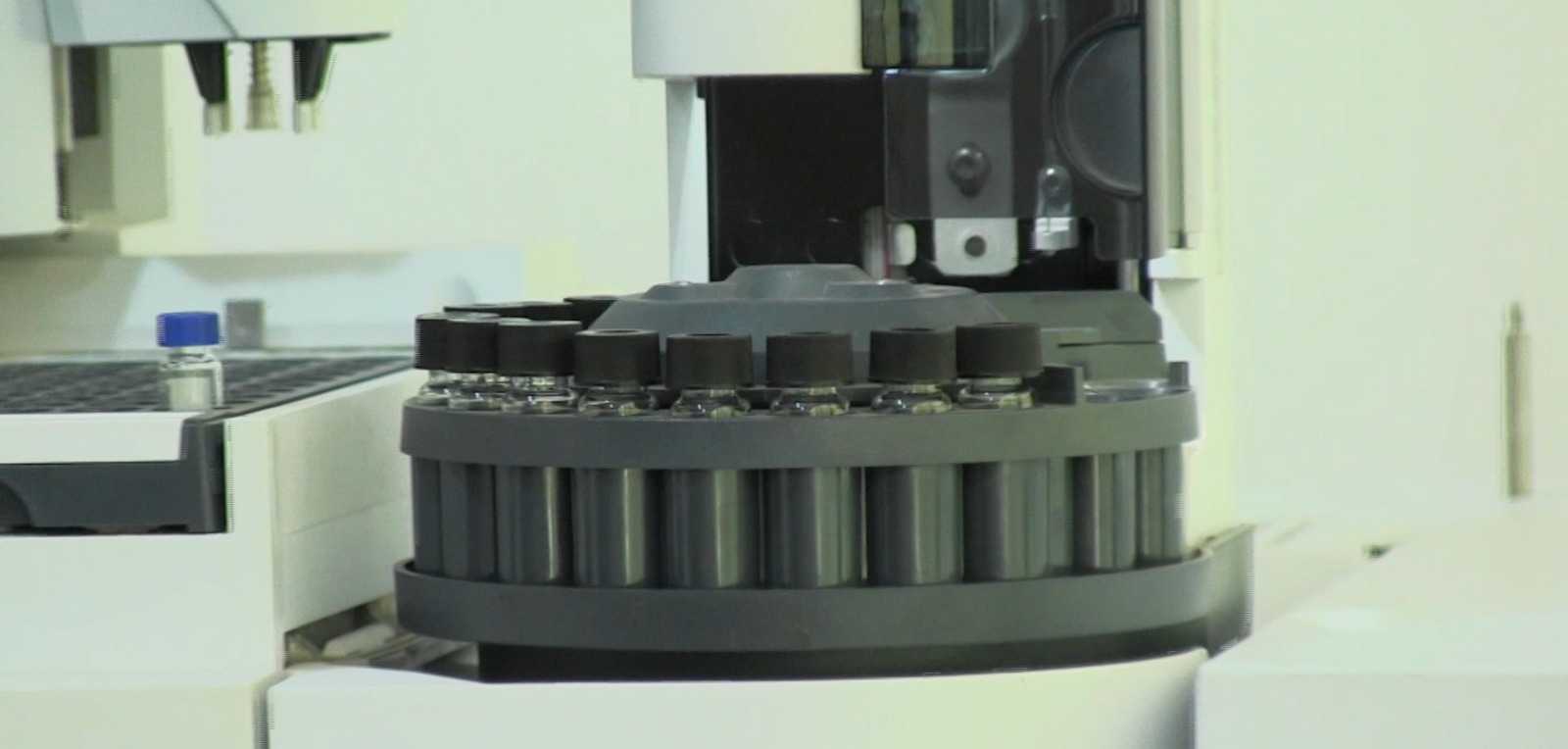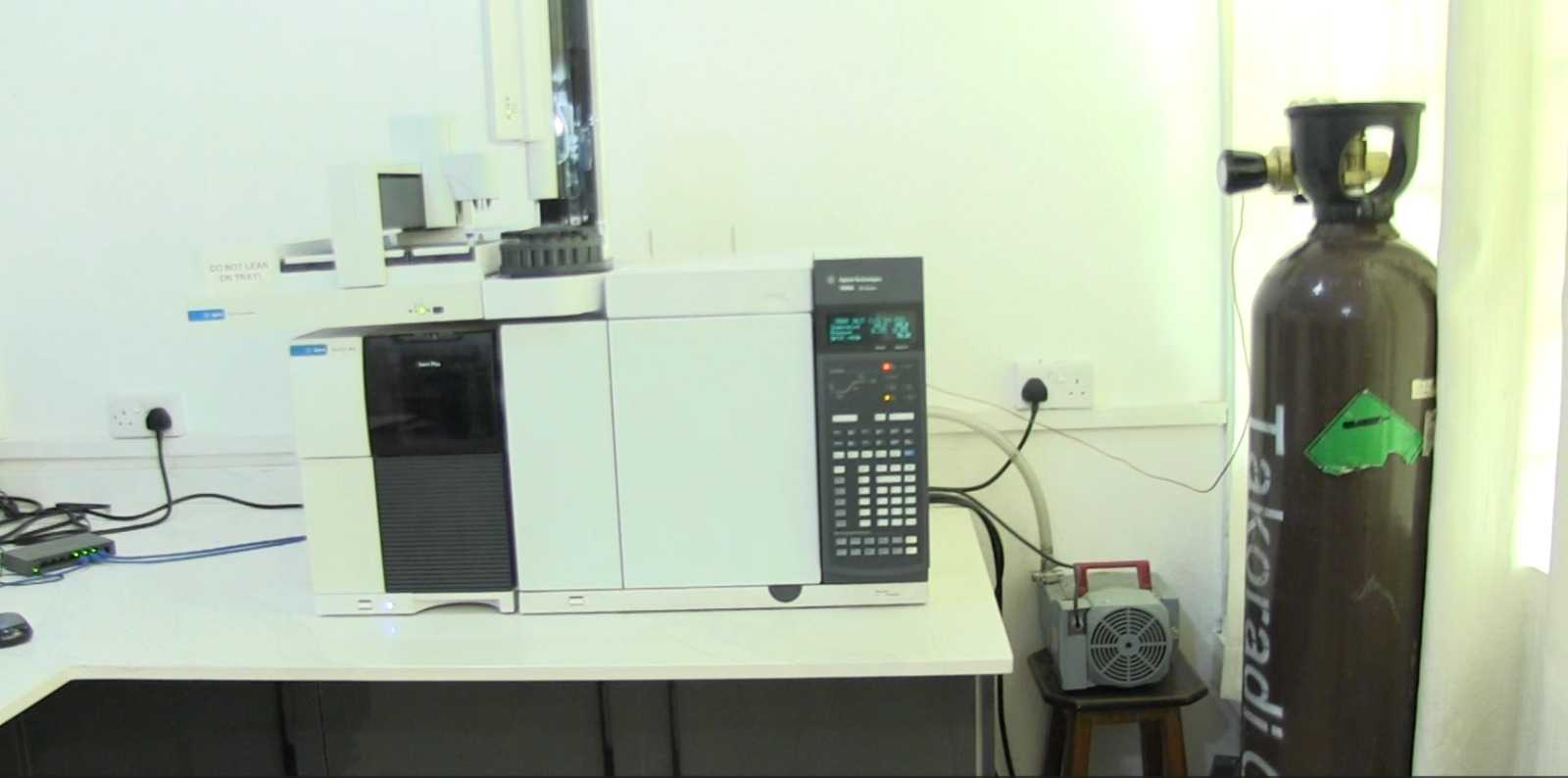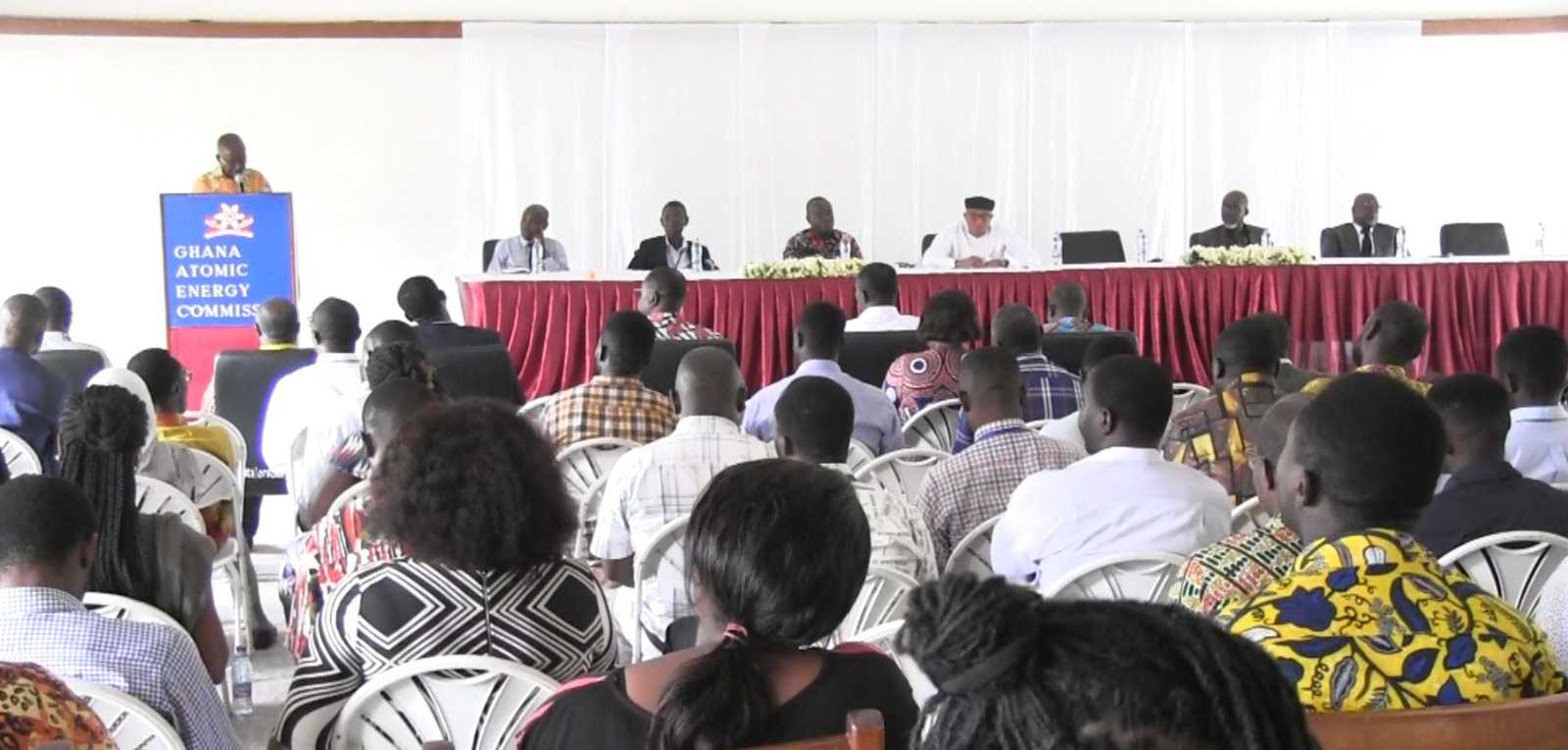Advertisement
Residues
resulting
from
pesticide
application
by
farmers
have
proven
to
have
long
term
effects,
including
cancer
on
consumers.
In
Ghana,
a
lingering
gap
exists
in
research
because
there
is
no
device
to
aid
detection
and
analysis.
But
the
Ghana
Atomic
Energy
Commission
is
now
stepping
up
study
of
key
food
contaminants
after
taking
delivery
of
a
multipurpose
scientific
device
used
for
detecting
and
analyzing
organochlorines
in
breast
milk,
fruits
and
vegetables.

The
method
of
pest
control
in
agriculture
has
given
boost
to
the
wide
use
of
pesticides
by
farmers.
These
pesticides
are
composed
of
organochlorines.

Organochlorines
are
organic
compounds
that
contain
multiple
chlorine
atoms
proven
by
scientists
to
be
carcinogenic.

When
applied
on
crops
as
a
pest
control
measure
leaves
residues
on
vegetables
and
fruits
which
becomes
harmful
when
consumed.
Research
shows
that
traces
of
the
residues
which
eventually
cause
breast
cancer
are
found
in
breast
milk.

However,
in
Ghana,
equipment
for
prompt
checking
of
the
residue
content
in
food
stuff
sold
on
the
market
has
long
ceased
to
exist,
thereby
impeding
fluid
research
works
at
the
Ghana
Atomic
Energy
Commission.
One
researcher
at
the
Commission
explained
that
“when
consumed,
the
organochlorine
residues
get
themselves
attached
to
the
body
fats
resulting
in
reactions.
This
reaction
creates
sore
which
turns
into
cancer.”
He,
however,
expressed
concerned
about
people
consuming
foods
bought
from
the
market
without
washing
it
with
salt
solution
or
vinegar.
The
equipment
supplied
to
the
Ghana
Atomic
Energy
Commission
by
the
National
Petroleum
Authority
will
also
aid
research
in
the
fishery,
mining
and
petrochemical
industries
as
the
device
has
the
capability
to
detect
all
contaminants
in
a
given
situation.
The
Chief
Executive
Officer
of
the
National
Petroleum
Authority,
NPA
Dr.
Mustapha
Abdul-Hamid
told
3news.com
in
an
interview
after
handing
over
the
device
to
the
management
of
Ghana
Atomic
Energy
Commission,
that
the
gesture
is
very
important.

He
said
“the
equipment
will
go
a
long
way
to
detect
pollutants
that
cause
cancer
in
our
environment
and
so
when
GAEC
approached
NPA
with
the
request,
we
obliged”.
Director
General
of
the
Ghana
Atomic
Energy
Commission,
Samuel
Boakye
Dampare
emphasized
the
need
for
a
sound
research
outcome
for
policy
formulation
and
implementation.
He
said
“in
development
planning,
sound
research
is
required
to
give
good
result
to
inform
improved
policies
and
actions.”
“Now
that
we
have
this
equipment,
we
will
have
something
to
work
with.
The
overarching
goal
is
to
improve
public
health
in
the
country,”
the
Director
General
further
remarked.
Meanwhile,
Researchers
at
GAEC
want
food
vendors
to
subject
samples
of
their
foods
for
test
of
pesticide
residues
to
guarantee
public
health.


